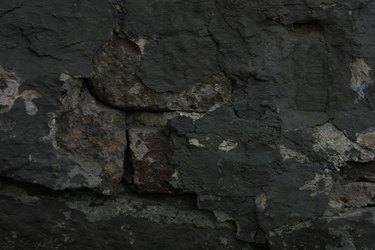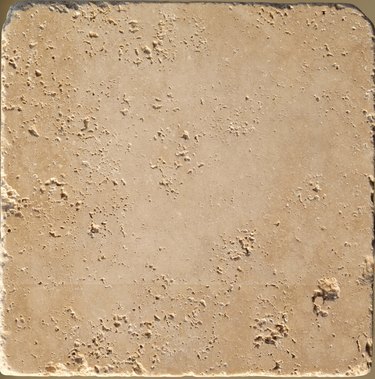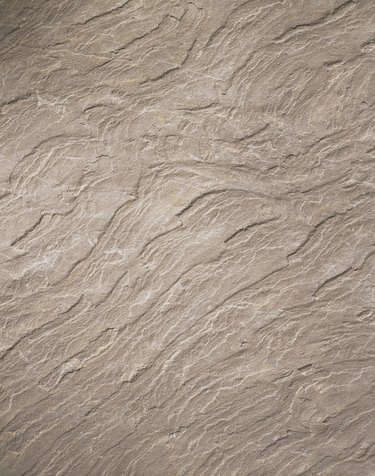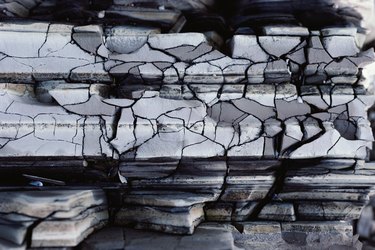
Rock patios provide a solid walking surface with a natural appearance. Both slate and limestone can be used as walking surfaces, such as patios. However, they have different visual characteristics and weather somewhat differently.
Coloring
Video of the Day

Limestone comes in a wide variety of colors, including white, black, grey and buff. It generally comes in earth tones, and builders often choose it for its soft and natural appearance. Slate comes in black, green and red. It's typical coloring is dark, like traditional blackboards made out of slate. This dark grey or black coloring matches the different plant colors in most yards well, making it an easy choice for a patio.
Video of the Day
Limestone Texture and Weathering

Limestone is a sedimentary rock made out of compacted loose sediments. Because of the way that it forms, limestone sometimes has visible small particles in it. Limestone also often contains fossils. As limestone weathers, fossils in the rock weather more slowly than the rest of the rock. Therefore, it does not always weather evenly and can become bumpy over long periods of time.
Slate Texture and Weathering

Slate is a metamorphic rock, meaning that its minerals form rock when they undergo chemical processes at high temperatures and pressures. Because of this formation process, slate does not have visible particles, like limestone. Slate does a great job of maintaining a rigid and flat surface, although it does scratch somewhat easily. Slate is a popular choice for chemistry lab tables, because it is very resistant to chemicals.
Pros and Cons
Slate is stronger than limestone, and it also absorbs less water when it is used as an outdoor patio surface. Slate also resists damage from chemicals very well, so it may be a better choice for patios that could be exposed to chemical spills. Limestone often has a warmer and earthier coloring, which some people prefer to slate. However, limestone can crack and become less durable than slate in environmental conditions where the patio heats up, freezes and thaws regularly.